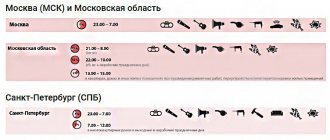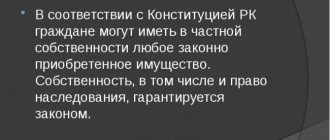The main federal legislative act that establishes and regulates the principles of organizing local self-government in Russia is No. 131-FZ. It was approved by both chambers of the Federal Assembly - the State Duma on September 16, 2003 and the Federation Council on September 24, 2003, after which it was signed by the President on October 6, 2003.
Most of the provisions of Law 131-FZ were supposed to come into force from the beginning of 2006, which was explained by the seriousness of the changes that local government had to undergo. It is not surprising that more than 2 years were allotted for their preparation - from the fall of 2003 to the beginning of 2006. In fact, No. 131-FZ on local self-government came into force in full only on January 1, 2009.
The law in question, 131 Federal Law, is of great importance for achieving a normal life and work for citizens, since it is local government bodies (LGUs) that ensure the protection of their interests at the everyday level. At the same time, attributing this level of management to the grassroots level is fundamentally wrong, since local state self-government is an important and mandatory part of any civil society, without which it is simply impossible to imagine a rule-of-law state.
We should not forget about Articles 3 and 12 of the Constitution of the Russian Federation, the first of which provides for the need for citizens to represent their interests through local self-government, and the second guarantees its existence in Russia.
It is important to note that this practice is not a domestic invention, but is actively used by the vast majority of developed countries of the world.
General characteristics No. 131-FZ
The essence of Federal Law 131 on the general principles of local self-government is that local authorities should become one of the mandatory conditions for protecting the rights of ordinary Russians granted to them by the Constitution. Moreover, their structure provides for three types of territorial local or, as they are often called, municipal entities (MO).
The organization of local self-government, in accordance with Federal Law No. 131 of October 6, 2003, assumes a multi-level system of municipal government, consisting of:
- representative body. Its head is necessarily elected directly by the population of the Moscow region;
- local administration, which may consist of both elected officials and contract employees;
- a control and accounting body, the presence of which is a mandatory condition for the work of LSG;
- other divisions, the creation of which is envisaged by the internal documents of the Ministry of Defense.
No. 131-FZ on self-government defines the key parameters of the work of local authorities, their powers, sources of financing, principles of interaction with each other, and also establishes state guarantees to ensure their activities. In addition, Federal Law 131-FZ establishes possible ways in which citizens have the right to express their will, starting with elections and referendums and ending with gatherings, meetings and public hearings.
An important and very characteristic feature that No. 131-FZ on the general principles of organizing LSG has is the constant introduction of adjustments and changes to its text. The last of them at the moment were introduced by No. 83-FZ, adopted on April 18, 2018.
Why are representative bodies of local self-government needed, and what do they do?
Without going into legal details, the purpose of the representative body can be characterized as follows: it implements legislative initiatives and makes decisions on issues of local importance that are important to every resident of the settlement. The decisions of this body are binding on the territory of the entire municipality. Moreover, the representative body exercises control over the activities of other bodies and officials of local government. It is the representative body that approves the local budget, establishes local taxes and fees, as well as benefits for them.
Modern history of the development of Russian legislation on local self-government
For the first time in the modern history of Russia, the principles of local self-government were laid down by Law No. 1417-1, issued before the collapse of the USSR and dated 04/09/1990. This normative act for the first time separated state bodies and local self-government, although this was done extremely superficially due to completely understandable and objective reasons.
A more serious attempt to formulate what the principles of activity of the federal government and local self-government are and how they differ was made already in the Russian Federation, when No. 154-FZ, signed by the President on August 28, 1995, was published. The content of this Law became the reason for the formation of LSG in Russia. However, the general organization of local government, which was proposed by No. 154-FZ, contained serious shortcomings. Among the most important are the insufficient detail of the concept of a municipality and the lack of a clear division between the powers of local self-government and the rights of state power.
These and some other shortcomings of the legislative act required not the introduction of adjustments, but the development of a fundamentally new Federal Law. This was No. 131-FZ on the general principles of local self-government, which came into force in 2003.
Why was the right to local self-government given and how can it be realized?
The Constitution of the Russian Federation in Article 3 establishes that the only source of power is the multinational people of Russia. The people can exercise this power directly or through state authorities or local governments. That is, if the people are endowed with powers of power, then they certainly need to be implemented, if, of course, the people are interested in having their rights strictly observed at all levels.
The legislation of the Russian Federation distinguishes two ways of realizing the right of citizens to local self-government.
The first one covers forms of direct expression of will, which include:
- — participation in elections of local government bodies and officials - head of administration, mayor;
— participation of citizens in local referendums;
— participation of citizens in meetings (gatherings) of citizens;
— citizens’ appeal to local government bodies;
— self-organization of citizens through the use of forms of territorial public self-government;
- other forms provided for by the laws of the Kaliningrad region (people's law-making initiative, rallies, citizen surveys, etc.).
The second way to realize the right of citizens to local self-government is indirect participation - through elected and other local government bodies. These bodies are obliged to take into account public opinion, summarize citizens’ proposals and complaints, provide responses to citizens’ requests, hold meetings with the public, and issue reports. If local government bodies ignore these responsibilities, then the question of loss of confidence in deputies, the head of administration (mayor), recall, administrative or disciplinary liability may be raised.
Contents No. 131-FZ and comments to the text of the Law
Federal Law 131 on the organization of local self-government is a fairly voluminous document that includes 12 chapters containing 86 articles. It is not surprising that the full text of the legislative act 131-FZ until recently was posted only on specialized Internet reference resources, most of which had paid access, or in the form of a special paper publication.
However, recently it is quite easy to find Federal Law 131 with amendments and additions online, which is not surprising, given the importance of the activities of local government and issues related to it. Moreover, many online resources post comments on Federal Law 131 in general or on individual chapters and articles of the Federal Law in varying degrees of detail. However, the issues covered in this way do not always correctly reveal the essence of local self-government in Russia. Therefore, it would be quite logical to consider the contents of the current edition of 131-FZ 2021 in more detail.
Chapter 1. General provisions of 131-FZ
The first chapter of 131-FZ on the principles of local self-government includes 9 articles. It contains the general provisions of the Law and establishes the concept and terms that are used further in the text.
Article 1 of the first chapter of 131-FZ is traditionally one of the shortest, as it contains references to the Constitution of Russia, which guarantees citizens of the country the right to local self-government in the Russian Federation.
Clause 2 of Article 1 defines the concept of local self-government in the Russian Federation, which is a form of realizing the people’s right to power within the limits established by the Constitution.
Article 2 provides definitions of the most important terms contained in Law 131-FZ, in particular:
- the concept of main municipalities, including rural and urban settlements, municipal districts, urban districts and intracity territories of federal significance;
- determination of local self-government officials, who are divided into elected and those who have signed an employment contract;
- explanations regarding the most important concepts for a regulatory document, for example, rules for the improvement of municipal territories, legal acts at the municipal level, as well as the classification of issues resolved by local self-government.
Article 3 of the first chapter of 131-FZ contains a statement of the rights of Russians to the activities of local government structures, which are guaranteed by the Constitution of the country. The next article, Federal Law 131, includes the legal framework that guides local self-government and state power in the issues under consideration. In this case, of course, we are again talking about the Constitution and this Federal Law.
Art. Federal Law 131 numbers 5 and 6 consist of a description of the powers, respectively, of the federal and regional government in the field of local self-government. It is quite natural that priority in this case is given to the Constitution and regulations at the federal level, one of which is Law 131 Federal Law on local self-government.
Article 7 131-FZ establishes the concept of a municipal legal act, which is a normative document adopted by the local self-government of municipalities and mandatory for execution at this level. Article 8 131-FZ provides the opportunity to create a council of the Ministry of Defense at the regional level and an all-Russian association of the Ministry of Defense. In addition, the powers of local self-government are provided, allowing it to create intermunicipal organizations, the purpose of which is to combine the material, financial and human resources available to individual municipalities. In Art. 9 of Law 131-FZ MSU is allowed to introduce official symbols of the Moscow Region.
Chapter 2. Principles of territorial organization of LSG
The 4 articles (from 10 to 13) of the second chapter contain the most important principles of Federal Law-131, which relate to the territories of the Moscow Region, the definition of boundaries and the rules for changing them, as well as the rules for the creation, transformation and abolition of municipalities and settlements. This chapter is rightly considered one of the shortest in terms of text volume and contains mainly various legal nuances of the procedures under consideration.
Therefore, the content of this section, included in Federal Law 131, is of interest, first of all, to lawyers dealing with such issues, and directly to employees of local self-government. However, one should not underestimate its importance, since the normative act in question for the first time in Russia established a specific list of requirements, the fulfillment of which is necessary when determining and changing the boundaries of a municipality, and did this at the federal level. As a result, state authorities and local governments received a simple and understandable mechanism for implementing these activities or resolving controversial issues directly related to them.
Chapter 3. Issues of local importance in 131-FZ
The third is rightly included among the key chapters of 131-FZ. It begins in three articles, 14, 15 and 16, each of which describes in detail the issues that are resolved by LSG. The division into three parts is due to the fact that each of them deals with issues of local self-government, solved by three different forms of local government:
- in Article 14 - urban settlements and rural settlements;
- in Article 15 - municipal district;
- in article 16 - urban district.
It is important to note a fairly serious number of functions assigned to local authorities and issues falling under their jurisdiction. For example, the list of issues of local importance that are in the area of attention of the local self-government of a municipal district includes 36 points, among which, in particular, are the following:
- development, approval and subsequent execution of the budget of the Ministry of Defense;
- determining the amount of municipal taxes and other mandatory contributions administered by local self-government;
- maintaining land control in settlement territories;
- carrying out cadastral work, which has recently become especially relevant, since now the amount of taxes on real estate owned by private and legal entities depends on the cadastral value;
- creation and maintenance of an archive of municipal level documents;
- creation of conditions necessary for the provision of medical services in the region;
- development and implementation of various activities aimed at protecting the natural environment;
- participation in organizing processes for the collection and disposal or storage of household waste, etc.
In many ways, similar, although not so numerous, functions, as well as rights, are defined for urban or rural settlements and an urban district. It is important to note that serious importance for all three types of municipalities is given to issues related to the improvement of territories located within their borders. This is especially relevant in modern conditions, although it does not find adequate financial support.
Article 17 131-FZ contains the powers that municipal and local self-government have. In separate subsections in the form of Art. 17.1. a description of such an important function of LSG as municipal control was made. The last article of the third chapter of the Law defines the principles in accordance with which the legal regulation of the rights and powers of local self-government bodies should be carried out. Article 18.1. a list of parameters has been established with the help of which it is necessary to evaluate the efficiency with which local self-government of citizens operates in a particular municipality.
Chapter 4. Empowerment of local self-government bodies with certain state powers in 131-FZ
One of the shortest chapters that includes Federal Law 131-FZ on the general principles of local self-government. It contains three articles - from 19 to 21. The first of them states that the rights of local governments established by the legal act in question or other documents of the federal and regional level relate to individual state powers.
At the same time, Law 131-FZ must indicate not only the name of the local self-government body to which powers are delegated, but also the deadline for their provision, an exact list, as well as sources of financing necessary for execution. In addition, methods of control by federal or state authorities and conditions for terminating such interaction must be spelled out.
Article 131-FZ number 20 describes the procedure for the exercise by local self-government bodies of state powers that have been delegated to them by regulatory documents at the federal or regional level. The next article, number 21, establishes the need and procedure for maintaining state control over the execution of state powers delegated to the level of the Moscow Region.
Chapter 5. Forms of implementation by the population of LSG and participation of the population in the implementation of LSG
An important parameter that largely determines how effectively the local government system operates is the forms of its implementation. It is their detailed description that is devoted to Chapter 5 of the Federal Law 131-FZ under consideration. At the same time, each variety is given a separate article in the normative act.
No. 131-FZ provides for the following forms of local self-government that can be used in practice;
- local referendum (Article 22). Used to resolve issues classified by federal legislation as local. Characteristic features include: implementation throughout the entire territory of the Moscow Region, a mandatory condition in the form of collecting signatures (the maximum value for making a decision on holding is no more than 5% of the total number of citizens), notifying the population at least a month before the event. The decision taken at the referendum is subject to unconditional execution by local self-government bodies;
- municipal elections (Article 23). The purpose of implementation is the election of members to elected subjects of local government. The main conditions for the holding are secret and universal voting;
- voting on the recall of elected representatives or changes in the boundaries of the municipality (Article 24). Despite the fairly large volume of text, this is a poorly developed issue, so adjustments are constantly being made to the article. The purpose of this form of implementation of LSG is the possibility of recalling a previously elected deputy or member of municipal bodies, as well as changing the boundaries of a territorial entity;
- gathering of citizens (Articles 25 and 25.1.) The article defines the rights of local self-government that the gathering of citizens has as a representative body of the Moscow Region. This version of MSU is rightly considered traditional, however, in modern conditions it is rarely used in practice;
- law-making initiative (Article 26). Local government decisions taken in the form of a law-making initiative are solely advisory in nature. It is important to distinguish this form of LSG from citizens’ appeals, for example, petitions;
- territorial public local self-government (Article 27) and its variety - headman (Article 27.1), existing for a rural settlement. A form of self-organization of citizens united on a territorial basis. Created within the framework of a municipality or its individual parts. It can be expressed in the form of meetings or the appointment of a headman, which is provided for by the provisions of Federal Law No. 131 on rural settlements;
- public hearings and public discussions (Article 28). One of the important innovations that distinguishes No. 131-FZ from the previously valid No. 154-FZ. Public hearings are discussions of various development projects of municipalities or legal documents adopted by their governing bodies. The initiative comes from the heads of municipalities, however, some projects and acts of local government are submitted to public hearings without fail;
- meeting of citizens (Article 29). This article, in light of recent innovations in domestic legislation, raises various interpretations and many questions. This is somewhat surprising, since the wording set out in No. 131-FZ can hardly be called ambiguous. They clearly establish the right of citizens to hold meetings, which is a continuation of the provisions of the Constitution;
- citizens' conference or meeting of delegates (Article 30). A rarely used form of LSG, which is actually an alternative to a simpler and more understandable meeting;
- poll of citizens (Article 31). The main purpose of the survey is to obtain the opinions of citizens living in the territory of the Moscow Region on issues falling under the jurisdiction of local authorities. The results of the event are in the nature of recommendations;
- citizens' appeal to local self-government bodies (Article 32). They are divided into written, which in practice are used much more often, and oral, as well as collective and individual;
- other forms (Article 33). No. 131-FZ allows citizens to participate in any other forms of local self-government if they do not contradict current legislation in Russia.
Chapter 6. Bodies and officials of local self-government
The next chapter, included in the Law on Local Self-Government 131-FZ, establishes the types of governing bodies and their officials. In Art. 34 contains a general description of the principles on the basis of which the organization of local government bodies in the Russian Federation is carried out. Articles 35 to 39 of 131-FZ explain in detail the powers and functional responsibilities of each of them, including:
- representative body of the Moscow Region (Article 35 131-FZ) and its constituent factions (Article 35.1 131-FZ). Begins activity if at least 66.6% of the full composition of the deputy corps is elected. The activities of the MO body are regulated by the charter of education, federal and regional legislation. The first meeting is held no later than one month from the date of election. The assembly acts as a representative body of the local self-government if the number of voters living in the territory of the local self-government does not exceed 100 people. With a population of 100-300 people, the form of the representative body is chosen by the citizens themselves. Also in Art. 35 shows the minimum size of the representative body of the local self-government, which depends on the number of residents of the local government. For example, with a population of over 0.5 million people, the minimum number of members of the representative body is 35 people. The representative body elected by the residents of the municipality is in charge of all issues of local importance described in the previous chapters of Federal Law 131;
- head of the Moscow Region (Article 36 131-FZ). The highest position provided for by the Law on the Organization of Local Self-Government 131 Federal Law. The list of powers, as well as the rights and responsibilities of the head, are determined by the charter of the Moscow Region. The document under consideration allows two options for electing the head - by direct expression of the will of the population of the municipal territory or by voting of elected members of the representative body of the LSG from among its members. An important point of Federal Law-131 is the impossibility of combining the posts of the head of the Moscow Region and the chairman of the representative body of the local self-government. Any citizen of Russia who meets the requirements of No. 67-FZ has the right to be elected head of the Moscow Region. The charter of a municipal entity may include some types of restrictions on the right to serve as the head of a municipality, in particular, on the number of consecutive terms of office or total;
- local administration (Article 37 131-FZ). It is an executive and administrative body of the Ministry of Defense as opposed to a representative body. The administration is managed by its head, who can be either the head of the Moscow Region or a citizen performing official duties under a contract. In recent years, the second option has prevailed in most large cities of the country. The term of work of the head of the administration coincides with the duration of the activity of the representative body of the LSG, which establishes the terms of the concluded contract. The rights and duties of the head of the official appointed or selected by the head of the local administration are established by the charter of the municipality and the provisions of the contract signed by him. In fact, a similar position today is called a city manager;
- control and accounting body of the Moscow Region (Article 38 131-FZ). The main function of this local self-government body is to exercise control over the activities of local government representatives and the correct execution of the municipal budget. The activities of such bodies are regulated by No. 6-FZ, entered into force on 02/07/2011;
- Election Commission of the Moscow Region (Article 39 131-FZ). A separate body of the Ministry of Defense, which, in accordance with the provisions of this article, is not part of the local self-government bodies. This approach allows us to maintain the autonomy and independence that are necessary to perform the functions assigned to the election commission. They consist of the organization, preparation and subsequent conduct of any election procedures, referendums, polls and other similar events on the territory of the Moscow Region.
The legal status of the selected local self-government representative (Article 40 131-FZ), as well as local self-government bodies as legal entities (Article 41 131-FZ) are considered separately. Regarding the first question, it is worth highlighting the following important point: the deputy term cannot be less than 2 and exceed 5 years. Moreover, in most cases, the status of a member of a representative body of a local self-government does not provide for exemption from a person’s main activity.
Article 41 131-FZ establishes the legal status of the local administration and the representative body of the Moscow Region in the form of an ordinary legal entity, therefore they must undergo the appropriate registration procedure. Moreover, they belong to municipal government institutions, the purpose of whose creation and operation is to perform the functions of local self-government.
An explanation of what constitutes a municipal service from a legal point of view is the responsibility of Art. 42. The main point that needs to be highlighted is the fact that the legal regulation of issues related to serving in local self-government bodies is assigned to two Federal Laws - No. 77-FZ, which dates back to June 10, 2008, and No. 281 - Federal Law, which came into force on December 25, 2008.
Chapter 7. Municipal legal acts 131-FZ
The seventh chapter of Federal Law-131 consists of six articles, starting with 43 and ending with 48. Art. 43 131-FZ establishes the basic principles for the formation of a system of municipal legal acts, which includes the main document in the form of the charter of the municipality (Article 44 131-FZ), as well as regulatory and other documents developed and approved by the representative body of the municipality and its head, as well as local administration and its leader.
To take into account municipal legal acts, Article 43.1 131-FZ establishes the need to include all such documents in a specially created register. It is formed and maintained in accordance with the requirements of the legislation of the Russian Federation by the government body authorized to carry out such activities.
One of the forms of municipal legal acts are decisions that are made through the direct expression of the will of citizens living in the territory of the municipality. These are the provisions of Art. 45 of the considered 131-FZ. It provides for the adoption of such decisions at gatherings, through a referendum or through other forms of realizing the rights of citizens to local self-government.
Relatively recently, namely through the introduction of No. 463-FZ, dated December 29, 2017, Art. 45 was supplemented by Art. 45.1, which separately specifies this type of legal act as the rules for landscaping the territory of the Moscow Region.
This document covers many issues, the most important of which are:
- determining the order of maintenance and use of public places;
- development and implementation of projects involving landscaping, including earthworks;
- principles of organizing lighting, landscaping, placement of children's playgrounds and other similar issues on the territory of the Moscow Region.
Articles 46-48 of 131-FZ describe the legally correct procedure for the preparation, entry into force, suspension and cancellation of municipal documents of various types described in the previous articles of this chapter of the legislative act.
Chapter 8. Economic basis of local self-government
Another key difference between the considered No. 131-FZ and its predecessor is the detailed study of the economic basis for the activities of local self-government bodies. Adopted in 1995 and previously in force, No. 154-FZ practically did not address economic issues, since it was assumed that they would be regulated by other federal legislative acts.
The current Law on the Organization of Local Self-Government No. 131-FZ in Art. 49 very broadly interprets the concept of the economic basis of local self-government, including not only municipal property, but also property (Article 50 131-FZ) belonging to the Moscow Region, financial resources of the budget (Articles 52, 53 and 55 131-FZ), earned or received in the form of municipal taxes and fees, as well as various property rights of the Moscow Region (Article 51 131-FZ). Each of the listed concepts is given a detailed description in the corresponding article or even several.
Separate articles of 131-FZ highlight the rules and procedure for procurement, goods and services from which are directed to meet various municipal needs (Article 54 131-FZ), as well as the permissible mechanism for municipal borrowing (Article 64 131-FZ).
Also, several articles are devoted to such important issues as the allocation and rules for spending subsidies and transfers directed for various purposes from regional budgets (Article 63 131-FZ) and interbudgetary funds (Article 65 131-FZ). Much attention is paid to the principles of equalizing the level of budgetary provision of various types of municipalities.
The importance of Chapter 8 of 131-FZ is also emphasized by the fact that it was edited quite often, which is explained by the desire of legislators to bring the normative act as close as possible to real practice. As a result, some articles, for example, Articles 57-59 and 62 131-FZ, simply lost force and were excluded from the current version of the document.
Chapter 9. Intermunicipal cooperation
Chapter 9 of 131-FZ, unlike the previous one, is short in terms of content and includes only four articles. Each of them defines the rules for the creation and functioning of various bodies of intermunicipal cooperation, which include:
- Councils of the Ministry of Defense of the regions of the Russian Federation (Article 66 131-FZ). They are created on the territory of each subject of the Russian Federation. Their activities are regulated by No. 7-FZ, which came into force on January 12, 1996, which establishes the rules of work for NPOs in the form of associations;
- All-Russian association of Moscow Region (Article 67 131-FZ). An intermunicipal cooperation body that can be created by regional councils of municipalities. To obtain full status, membership in at least two-thirds of the councils created by the constituent entities of the Russian Federation is required;
- intermunicipal organizations (Article 68 131-FZ). They are created by representative bodies of the Ministry of Defense to coordinate activities and implement joint projects. One of them could be print media publishing;
- NPO MO (Article 69 131-FZ). The right to create various types of NPOs is granted to representative bodies of the Moscow Region and their associations. At the same time, the activities of such non-profit organizations are regulated by the federal legislation in force in relation to them.
Chapter 10. Responsibility of local self-government bodies and representatives
The foundations of local self-government laid down by No. 131-FZ provide for the vesting of local self-government bodies and their officials not only with powers, but also, which is quite logical, with responsibility.
This approach should be considered completely justified and appropriate. Responsibility for decisions made individually or collectively by local government bodies is divided into several types in Law 131-FZ, based on the level of the position held, the type of municipality and local self-government body. In addition, No. 131-FZ provides for the responsibility of local self-government bodies and specific officials to citizens living in the territory of the Moscow Region, to the Russian Federation as a state, as well as to individual legal entities or citizens.
Art. deserves special mention. 74 131-FZ, which establishes the responsibility of heads of municipalities and municipal administrations to the state.
It also regulates the grounds for the possible resignation of an official, which include:
- the presence of a conflict of interest, one of the parties to which is the head of the Ministry of Defense or the administration;
- failure to provide information about the level and sources of income or provision of erroneous information;
- engaging in entrepreneurial activity by one of the specified officials, etc.
A group of deputies elected to a representative body has the right to propose the resignation of the head of a municipal government, if their number is at least a third of the total composition of the municipal self-government body.
Chapter 11. Features of the organization of local self-government
Law 131-FZ on the organization of local self-government provides for the possibility of implementing local self-government, taking into account the characteristic features of some municipalities. These include, for example, cities of federal significance, ZATOs, as well as border areas. In addition, Federal Law-131 also establishes special rules of local self-government for municipalities located in the Far North, on the territory of the Skolkovo Information Center, zones of advanced economic and social development, as well as innovative scientific and technological centers. For each of the listed municipalities, 131-FZ separately stipulates possible changes related to the principles of organization and exercise of the rights of Russians to local self-government in these territories.
Chapter 12. Transitional provisions of 131-FZ
The final chapter of the Law on Local Self-Government in Russia 131-FZ establishes the time when the provisions of the regulatory document come into force. The first edition of Federal Law-131 provided for its entry into force starting from 01/01/2006. However, practice has shown that a significant part of the constituent entities of the Russian Federation are not ready to use the new principles of organizing local self-government. The logical consequence of this was that the date for entry into force of document 131-FZ was postponed to the beginning of 2009. The basis for this was No. 129-FZ, adopted on October 12, 2005.
Thus, the transition period allocated for reforming the activities of municipal self-government bodies was more than 5 years - from 10/06/2003 to 01/01/2009.
Who is the head of the municipality?
The charter of a municipal formation may provide for the position of the head of the municipal formation - an elected official who heads the activities for the implementation of local self-government on the territory of the municipal formation.
In the Kaliningrad region, such a position has been established in each of the 22 municipalities. The name and competence of the heads of municipalities are established by the charters.
So, in the city of Pionersky, this is the head of local government - the mayor; in the Guryevsky district - the head of the district. The charters of these municipalities state that the head of the municipality is the highest official of local government, he heads the local executive body and monitors the implementation of decisions made by the representative body.
Changes to No. 131-FZ made in recent years
As already noted, the law in question, 131-FZ, has repeatedly and regularly been subject to quite serious adjustments.
Currently, version No. 131-FZ is in force with amendments, the latest of which were introduced by two Federal Laws dated 2021 - No. 15-FZ, signed on 02/05, and No. 83-FZ, which was put into effect on 04/18.
The last of them contains a detailed description of the additional functions and powers of the headman of a rural settlement, clarifies the procedure for holding elections in municipalities, the number of which does not exceed 3 thousand people, and also makes a number of adjustments regarding the functions of deputies and the rules for publishing legal acts developed and approved by local authorities self-government.
It should be noted that today No. 131-FZ, the latest edition of which was adopted just two months ago, is quite different from the document adopted in the fall of 2005. This is not surprising, given the path that domestic local governments have traveled over the past 13 years.
What is the Charter of a municipality? Where can I read the text of the Charter?
The charter is the local Constitution, the most important condition for the creation and functioning of a municipality. The charter of a municipal formation is developed by the municipal formation independently. And it is accepted by representative bodies of local self-government or the population directly.
The Charter of the municipality can be found in any city or district library, representative body of local government (City Council, District Council). And you simply need to familiarize yourself with it if you care about your rights and freedoms.
conclusions
As a conclusion drawn from the consideration of No. 131-FZ on local self-government, it is best to cite the most important and defining principles of the formation and implementation of the rights of Russians to local self-government, formulated in 131-FZ. They look like this:
- local government operates throughout the country;
- municipalities are created by dividing and delimiting the territory of a constituent entity of the Russian Federation between settlements;
- local government bodies do not act as part of the structure of state power;
- the right to create and form local government bodies belongs exclusively to citizens of Russia;
- municipal self-government bodies are responsible for issues classified by Federal Law No. 131-FZ at the level of local significance;
- each MO forms its own budget and controls its execution;
- the state guarantees not only recognition, but also protection of the economic interests of local government activities in terms of property and property of the municipality;
- inadmissibility of spending funds from the municipal budget at the direction of bodies or legislative documents at the federal and regional levels.
In addition, it is necessary to highlight the principles, taking into account which local self-government bodies carry out their activities. They are as follows:
- complete independence and autonomy from any federal and regional authorities in terms of resolving issues classified by No. 131-FZ as issues of local importance;
- the work of local self-government bodies through a combination of mechanisms of direct expression of the will of citizens of the Russian Federation and representative democracy;
- execution of management functions assigned to the local government body within the framework of the existing municipal budget, formed according to the rules established by No. 131-FZ;
- responsibility of both collegial bodies of local self-government and individual officials, primarily heads of municipalities and local administrations, to citizens, the state and individual legal entities;
- the possibility of using various forms of local self-government, including assemblies, referendums, the formation of a representative body, etc.
What is a municipality?
The Russian Federation includes constituent entities of the Russian Federation: republics, territories, regions, federal cities - Moscow and St. Petersburg, autonomous regions and autonomous districts. Local self-government is carried out on the territory of a separate settlement
urban, rural, several settlements united by a common territory, parts of the settlement.
Thus, the vertical of power in Russia includes three levels: federal, subject of the Russian Federation and local. However, it must be taken into account that state
, and
local
.
There is a fundamental difference here. Mandatory attributes of a municipality are municipal property, local budget and elected bodies of local self-government.
Forms of local government
Next, we will find out the forms of implementation of local self-government and briefly dwell on each of them.
- Local referendum. In short, this is a vote of all citizens of a given municipality who have the right to vote on any issue that needs to be resolved. A secret vote is held and the decision is made by a majority vote.
A referendum has the right to be initiated by residents of a given local government (through the collection of signatures) or by a representative body of the local self-government + the head of the local administration (through a special legal act).The referendum is scheduled no later than 30 days from the date of receipt of documents by the representative body of the LSG. The referendum decision is subject to mandatory implementation.
- Municipal elections. They are carried out so that residents of a particular municipality can elect members of a representative body that will act in the interests of residents of the municipality.
- Voting on the recall of a previously elected representative (deputy) of a representative body, on changing the territorial boundaries of a municipality, on the transformation of a municipality. Voting is carried out at the initiative of residents of Moscow Region. The recall procedure is prescribed when the MO is created in its charter.
- Citizens' meeting. Simply put, this is a general meeting of Moscow Region residents. A meeting is held if the number of residents of a municipality is ≤ 100 (there is no representative body), or at the request of residents of a municipality whose number is from 100 to 300 people.
A gathering is competent to resolve any issues if half of the people at the gathering have the right to vote. The initiator of the gathering can be the head of the municipality or its residents (at least 10 people).The decision of the meeting is considered adopted if more than 50% of the people present at the meeting vote for it. The decision taken at the meeting is mandatory for execution.
- Public self-government. This form of local self-government implies that an initiative group of residents of the Moscow Region puts forward some tasks, then proposes them for discussion at meetings or conferences of residents of the Moscow Region. At the same time, the problems put forward for solution may be relevant only for a limited number of residents of Moscow Region.
Let me explain with an example: let’s say Mr. Ivanov, who lives in your building, decided that it was time to restore exemplary order in the stairwells. He invites all residents of your building to a meeting dedicated to this issue.Neighbors discuss the problem, make a decision and approve measures to restore order, and then, perhaps, even restore it. This process is called public self-government.
- Public hearings, discussions, meetings, conferences . They are initiated either by residents of the municipality, or by a representative body, or by the head of the administration. At public hearings, documents important for the Moscow Region are heard, for example, the draft charter of the Moscow Region, the budget of the Moscow Region (draft and subsequent execution).
- Surveys of Moscow Region residents . They can be carried out either by a representative body and (or) the head of the Moscow Region, or by government bodies. The survey results are not binding, they are only advisory in nature.
- Appeals from residents of Moscow Region to local self-government bodies (collective and individual) . They are obligatory for consideration by local authorities and making any decision on the topic of the appeal.
- Other forms of self-government that do not contradict the legislation of the Russian Federation.
What issues does local government decide?
The main functions of local government are enshrined in Art. 132 of the Constitution of the Russian Federation, and specified in Federal Law No. 131-FZ (Articles 14 - 16):
- management of municipal property;
- formation, approval and execution of the local budget;
- establishment, adjustment or abolition of local taxes and fees;
- performing the functions of a notary (how is that?) if there is no notary in the Moscow Region;
- law enforcement;
- organization of provision of public utilities to the population;
- creation of a master plan for the Moscow Region;
- participation in the implementation of cadastral works on the territory of the Moscow Region;
- approval of local standards for the design of capital buildings;
- exercising control over the use of municipal lands, including making decisions on the confiscation of land plots from individuals or legal entities if they are not used for their intended purpose;
- control over the use and conservation of forests and specially protected natural areas on the territory of the Moscow Region;
- issuance of permits and documents for construction within a specific municipality, permits for the commissioning of capital buildings;
- assignment and cancellation of addresses of permanent buildings, names of streets, alleys, etc.;
- making decisions on the demolition of unauthorized buildings;
- development and repair of local roads, ensuring road safety;
- construction of municipal housing facilities;
- providing low-income citizens of the Moscow Region with housing from the municipal fund;
- providing conditions for the development of agriculture and the development of small and medium-sized businesses (what is this?);
- organization of transport services on the territory of the Moscow Region;
- prevention of terrorism and extremism (how is that?) on the territory of the Moscow Region;
- participation in the prevention of emergencies (emergency situations) and in the elimination of their consequences;
- organizing events to prevent fires on the territory of the Moscow Region, participating in the elimination of fires and their consequences;
- organization and functioning of emergency rescue services on the territory of the Moscow Region;
- organizing provision of public catering, trade, leisure, and postal services to the population;
- creation of libraries and organization of their work;
- creating conditions for physical education and sports (including for people with disabilities), conditions for the development of folk art, conditions for the development of tourism;
- catching stray animals;
- organization and maintenance of cemeteries;
- resolving other issues of the Ministry of Defense.









